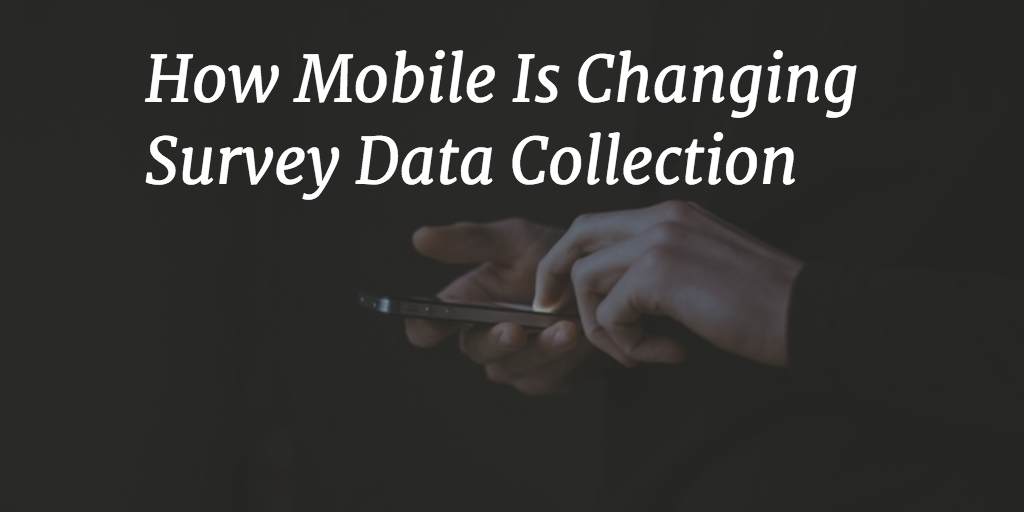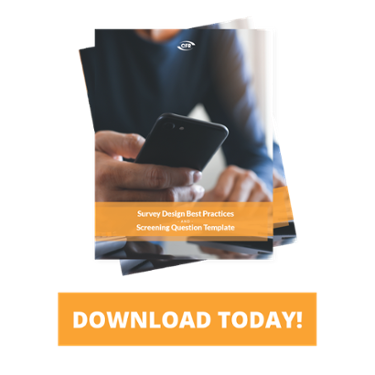
How Mobile Is Changing Survey Data Collection

The advent of mobile surveying has caused subtle, but no less monumental, shifts in how the world of corporate market research is conducted. Advances in survey data collection methodology and the use of mobile devices like tablets as a field data collection tool have led to the evolution of mobile surveys into their own niche.
Mobile survey data collection methods are becoming more precisely adapted to their respective platforms, taking greater advantage of the technology’s benefits while mitigating its constraints. Market research firms, university research and other conductors of research are beginning to embrace the strengths of mobile and adapt to mobile environments in order to enhance their research methodology.
Mobile Survey Research’s Intimacy and Immediacy
With billions of mobile devices in the public market, mobile’s impact on our lifestyles has become profound. Commuting, waiting in queues, passing time in between tasks and even watching television have all become moments in which it is common for someone to be also using their mobile device. Because the use of mobile devices has become so ubiquitous and intermittently dispersed throughout our day, the types of survey responses that mobile can elicit have much more immediacy than other survey methods, including traditional online surveys.
For instance, Pew Research found that asking questions in a typical time-relative framework can now be collapsed into shorter durations. People are more likely to remember and accurately report their habits via a mobile platform. Consequently, the question “Have comparison shopped the price for a product online in the past week?” can be changed to “Have you comparison shopped the price for a product online in the last hour?” without any decrease in accuracy. This effect allows survey conductors to capture responses more in-the-moment after events occur, leading to more accurate reporting of behaviors and observations.
Mobile Platforms as a Survey Data Collection Instrument
So far, the benefits discussed have related to self-recording surveys via a mobile app or mobile-optimized web platform, but professional recording can take place on a mobile platform as well. Instead of sending researchers out into the field with a pen and paper, they can record and capture data live on a tablet and upload it immediately to the cloud. Not only does this technology reduce the labor involved in recording survey responses, but it also collapses the period between recording and database input, lessening the opportunity for errors.
Educators have found the ability to use tablets as field instruments particularly appealing to undergraduate researchers, with much potential to extend its use further in the professional realm.
Should You Use Mobile Survey Data Collection?
While there are many clear benefits of using mobile platforms for sending or recording surveys, there are also some limitations and risks. For instance, Pew Research noted that response rates were lower for their mobile app-based survey compared to the online-based one, although they acknowledged that there could have been other variables.
Researchers must be careful when constructing their survey designs to consider the risks involved with mobile. They can consult our free guide to survey design best practices to mitigate these risks and increase their chances of conducting a successful survey.



